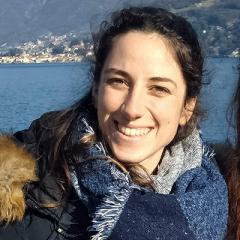My life trajectory feels a bit like that pinball game from the 90s.
I find a lot of people working in conservation have a personal tie to nature that goes back to their childhood, they always loved it and wanted to protect it, but … that wasn’t me. I grew up in a pretty small town in Spain, attended a music school and was trained in classical music, playing cello for 10 years. I hated the beach, was allergic to the sun, and my summers consisted of trips to the bookstore and endless reading sessions in the shade under the beach umbrella, while my brother would run and play around.
For the longest time I thought I was going to become a doctor and work for Doctors Without Borders. I knew I wanted to help people, and healing them sounded like the best way to do it. High school mathematics left long-lasting trauma though, so by the time I had to choose a Bachelor’s degree I went to study History and Anthropology, Arabic and Mandarin instead (the farthest thing from science I could think of). But after two years at university in Madrid, my natural state of restlessness gave me itchy feet. So, I left Spain to start a new Bachelor’s degree at the University of Stirling, Scotland, this time choosing the (in my eyes, then) lesser of the science evils: Biology.
All things ocean
I quickly realised I was passionate about conservation, I could still help people and I loved the interdisciplinarity of it, so I switched degrees. Then, after an exchange semester at the University of Hawai’i Hilo, I fell in love with all things ocean. I did my Honours with two (honestly, not-so-great) supervisors and completed it thanks to other amazing professors.
I guess I learnt two important lessons that have shaped my choices since: 1) I actually loved research; and 2) who you work with is almost as important as what you work on. When I finished my Honours project, I took a much-needed break from university until by luck or chance I came across an Erasmus Mundus Master program in Tropical Biodiversity and Ecosystems.
The next two years I got the incredible opportunity to travel and learn (my two favourite things to do) in three different countries and with an amazing group of people. I had started to enjoy modelling and programming, so I decided to improve my skills in this area. For my thesis, I searched for a lab that would allow me to do this while working on something that I was also passionate about. After some looking and searching, I came across Professor Anthony Richardson’s lab at The University of Queensland, so I emailed him and after a couple meetings we decided on a topic.
MPAs and seafood supply chains
Originally, I was going to be workingremotely, but again luck or chance made me decide to come to Australia for a couple of months, meet the lab, get started and then go back home. That was January 2020, and we all know how the story goes from there. I bought my tickets and (unintentionally) moved to Australia a month later. I did my thesis on climate-smart marine protected areas in the Indian Ocean and completed it during lockdown. After some trials and tribulations, I found a visa that allowed me to work while waiting for the borders to open and applying for PhDs.
Now I still love books, but spend most of my time staring at computer screens. I’m on my second year of a PhD with Associate Professor Carissa Klein and a great team of co-supervisors. My research focus is international trade and its implications for the environmental and socioeconomic sustainability of seafood, and vulnerabilities to the sustainability and resilience of seafood supply chains in Australia. If you asked little Rosa where she would see herself in 2023, this desk would probably be one of the last places she’d come up with, but I am grateful to everyone that has helped and inspired me along the way to get here.
Getting involved with the CBCS Management Committee was a way of giving back and helping to create a support network for others, so they might have the opportunities I did.
Teaser image: Portrait of Rosa Mar by Timothy Luckhart
Image above: The town of El Escorial, Spain. Photo by Rosa Mar Dominguez Martinez

